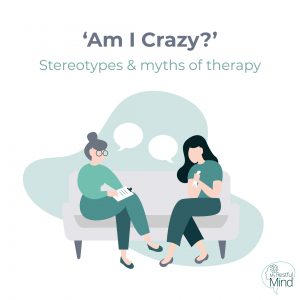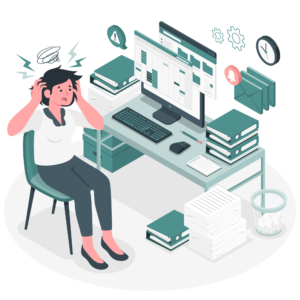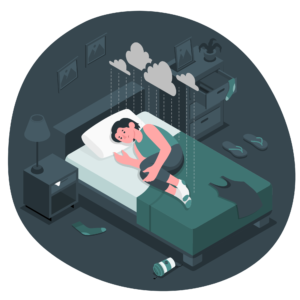Like almost everything in this world, our body, too, is interconnected with all its organs. Just like a person’s heart, kidney, liver or lungs, the brain, too, is a vital organ that needs to be taken care of. The human brain, is in fact, one of the most important organs in the absence of which none of the body parts can work. In simpler terms, a weak brain equals a weak human being.
Numerous diseases can plague a human brain. However, depression is one such problem that people often ignore, overlook or simply don’t taken seriously. To fully understand why this is so and how to tackle depression, one must know what it actually is.
What is Depression?
According to the Medical News Today: “Depression is a mood disorder characterized by persistently low mood and a feeling of sadness and loss of interest. It is a persistent problem, not a passing one, lasting on average 6 to 8 months.”
However, this is not always the case. Depression can be periodic. In some cases, it can last for years and years if not diagnosed on time. According to the CDC, “About 1 out of every 6 adults will have depression at some time in their life.” This is an alarming statistic showing the seriousness of the issue.
To further elaborate on the issue, here is what the World Health Organization (WHO) have to say: “Depression is a common mental disorder. Globally, more than 264 million people of all ages suffer from depression.”
Causes of depression
There is not a single pre-defined reason for the cause of depression. Experts suggest that it is usually caused by a complex combination of a series of factors. These may be biological, physiological or psychological, or based on genetics.
Studies however show that “people that have suffered from childhood traumas, negative life changing events, drug abuse or chronic pain syndromes are most likely to suffer from depression”.
Signs and Symptoms of Depression
Like all diseases related to the human body, depression, too, comes with a series symptoms that can immediately caution someone might be suffering from it. Since depression is a mood-oriented issue, its symptoms are easy to recognize for both the patient and other people around them.
The symptoms of depression are as follows:
1. Growing feeling of worthlessness
2. Depressed mood
3. Weight loss (In some cases abnormal weight gain as well)
4. Fatigue
5. Reduced pleasure/interest in activities that once brought joy
6. Extremely negative thoughts
7. Suicidal thoughts or actual suicide attempts
Depression & Suicide
Suicide is the second leading cause of death in young people. Depression is indeed a major cause of suicide. People feeling suicidal are so overwhelmed by emotions that they death appears the only way out.
Suicide is the eighth leading cause of death among Native Americans. 80% of those who attempted suicide suffered from chronic depression.
Therapy: An escape from depression?
Most people who have taken their own life, could be saved had they been reached out or taken care of in due time. Most people who even think of suicide do so because they don’t have the will to carry on anymore since they are all alone in their internal fight for survival.
So now the question arises: How can depression be tackled?
Depression can be taken care of thoroughly by two main methods. Both of these are being practiced almost all over the world now:
1) Antidepressants
To tackle depression, doctors prescribe specific medication according to the symptoms described by the patients. They commonly prescribe anti-depressant drugs in severe cases of depression. The length of the prescription period may vary from patient to patient. However it commonly excels an average of over 6-8 months.
2) Therapy
The most common method of tackling depression is by going old school. Despite numerous drugs, most doctors still refer patients to psychologists and mental health experts who use psychotherapy for treatment. In mild cases of depression, psychotherapies are the first option for treatment; in moderate and severe cases, they may be used alongside other treatment.
Aims of Therapy
The main aim of therapy is to talk the patients out of depression. The psychologists do so by conducting hour long sessions (in most cases) to learn about the patients’ ins and outs. The patient fully coordinates with the therapist/psychologist and in a way lets the frustrations out by describing each and everything that mentally disturbs him/her.
“It aims to enable patients, or clients, to understand their feelings, and what makes them feel positive, anxious, or depressed. This can equip them to cope with difficult situations in a more adaptive way.”
Therapy has the benefit of giving clients someone to talk to. It can create a new way of looking at difficult problems, and help people move towards a solution. Participants can gain a better understanding of themselves and their own goals and values, and can develop skills for improving relationships.
Therapy is one solution that is gaining special attention worldwide because for starters, it has absolutely no chemical side effects like most anti-depressants, it is easily done and lastly creates a long lasting bond between the patient and the psychologist provided that the overall therapy goes well.
It is extremely important to recognize the fact that depression is a reality and is not something that can just be overlooked. If the concerned authorities start raising more and more awareness amongst people especially the youth, there is not a shadow of doubt that this health problem can also be taken care of.
With psychologists and mental health experts slowly but surely gaining momentum and helping out more and more patients, there is a huge possibility that therapy could soon become the most harmless and most convenient way out of a grave and sometimes fatal disease.








